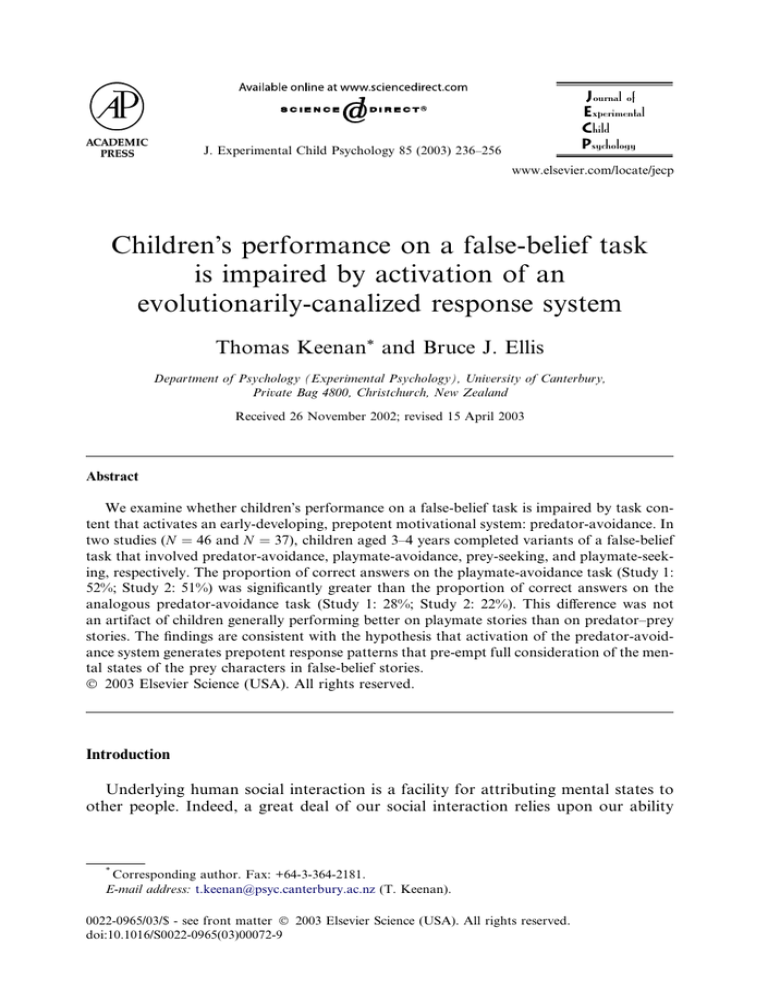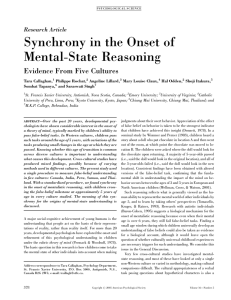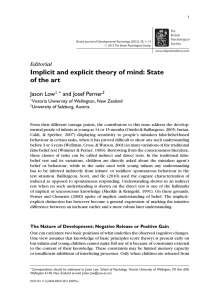
Journal of
Experimental
Child
Psychology
J. Experimental Child Psychology 85 (2003) 236–256
www.elsevier.com/locate/jecp
ChildrenÕs performance on a false-belief task
is impaired by activation of an
evolutionarily-canalized response system
Thomas Keenan* and Bruce J. Ellis
Department of Psychology (Experimental Psychology), University of Canterbury,
Private Bag 4800, Christchurch, New Zealand
Received 26 November 2002; revised 15 April 2003
Abstract
We examine whether childrenÕs performance on a false-belief task is impaired by task content that activates an early-developing, prepotent motivational system: predator-avoidance. In
two studies (N ¼ 46 and N ¼ 37), children aged 3–4 years completed variants of a false-belief
task that involved predator-avoidance, playmate-avoidance, prey-seeking, and playmate-seeking, respectively. The proportion of correct answers on the playmate-avoidance task (Study 1:
52%; Study 2: 51%) was significantly greater than the proportion of correct answers on the
analogous predator-avoidance task (Study 1: 28%; Study 2: 22%). This difference was not
an artifact of children generally performing better on playmate stories than on predator–prey
stories. The findings are consistent with the hypothesis that activation of the predator-avoidance system generates prepotent response patterns that pre-empt full consideration of the mental states of the prey characters in false-belief stories.
Ó 2003 Elsevier Science (USA). All rights reserved.
Introduction
Underlying human social interaction is a facility for attributing mental states to
other people. Indeed, a great deal of our social interaction relies upon our ability
*
Corresponding author. Fax: +64-3-364-2181.
E-mail address: t.keenan@psyc.canterbury.ac.nz (T. Keenan).
0022-0965/03/$ - see front matter Ó 2003 Elsevier Science (USA). All rights reserved.
doi:10.1016/S0022-0965(03)00072-9






